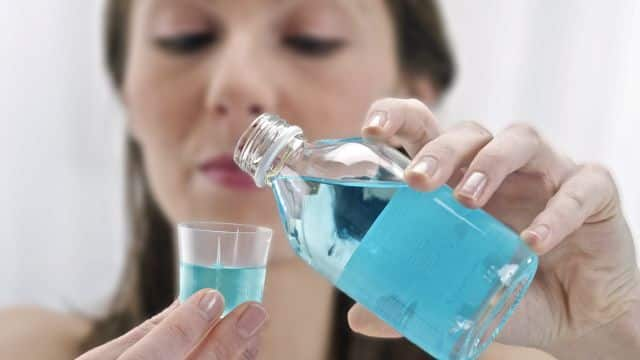-
-

ADULT ORTHODONTICS
Should You Use Mouthwash Before or After Brushing?Brushing and flossing are the foundation of a good oral hygiene routine, but mouthwash can also be a useful addition...

SELECTING DENTAL PRODUCTS
Soft Vs. Hard Toothbrush: Which One Should You Use?The toothbrush has come a long way. As the American Dental Association (ADA) notes...
-
Science & Innovation
- Oral Health and Dental Care | Colgate®
- Oral Health
- Benefits Of Alcohol Free Mouthwash


Including mouthwash in your daily oral hygiene habit is widely recommended to improve oral health because it can be used quickly throughout the day. Generally, in addition to brushing and flossing, the American Dental Association (ADA) Mouth Healthy site cites many types of mouthwashes that can be used for cosmetic and therapeutic purposes, both prescription and over-the-counter. Alcohol free mouthwash, however, is one type of product whose value often depends on the individual. It's important to select a mouth rinse that will be most effective in meeting your personal dental needs.
Why Use Alcohol Free Mouthwash?
Most marketed mouth rinses contain an alcohol – specifically ethanol – which can cause an initial burning sensation, unpleasant taste and bouts of dryness in the mouth. If you suffer from burning mouth syndrome or other oral irritations, you may want to select an alcohol free mouthwash to keep from aggravating your condition, which can occur with the use of an alcohol-containing mouthwash.
People who are experiencing xerostomia (dry mouth), an otherwise low saliva flow due to certain medicinal side effects, radiation therapies or systemic diseases such as Sjogren's syndrome or diabetes, can all benefit from using alcohol free mouthwashes. The alcohol free mouthwash is particularly beneficial for people who have a history of alcohol abuse as well.
Beyond these conditions, studies by BioMed Research International suggest alcohol free mouthwashes have a better effect on the gloss, color, hardness and wear of tooth composite restorations compared to mouthwashes that contain alcohol.
Types of Alcohol Free Mouthwashes
There are various types of alcohol free mouthwashes available on the market, and most of them contain ingredients to prevent tooth decay, periodontal diseases (gum diseases), dry mouth, halitosis (bad breath) and plaque and tartar buildup. Some also help to whiten your teeth. Some of the latest alcohol free mouthwashes have an active ingredient, cetylpyridinium chloride, which focuses on reducing plaque and gingivitis. It also works to improve oral health by providing 12 hours of antibacterial protection even after big meals and potent beverages.
Other Solutions
The wide range of products available to you contain multiple active ingredients, other than CPC. Chlorhexidine gluconate can be found with or without alcohol, and is often considered the most effective of mouthwash ingredients. Found in prescriptions, it functions to reduce both the amount of bacterial plaque formation and virulence of the bacterial plaque and reduce gingivitis.
Other alcohol free mouth rinses gaining modern popularity are natural, organic and herbal products. These formulas have anti-inflammatory and anti-fungal therapeutic effects as well, so they may appeal especially to those who suffer from any of the aforementioned oral irritations or considerations.
Dental Visit
There are various alcohol free mouth rinses that can prevent dental diseases and freshen breath. The mouth rinse selection rivals toothpaste and toothbrushes in the oral care aisle, but a mouth rinse should never replace brushing and flossing. Rather, mouth rinses should compliment your regular dental care routine to improve your oral health. Your dental health professional can recommend options of alcohol free mouth rinses that are most suitable for improving your own oral well-being.
About the author: Yolanda Eddis, RDH, BASDH, is a clinical dental hygienist for the United States government. She is a member of the American Dental Education Association and Esther Wilkins Education Program and is a Colgate Oral Health Advisor. Her research interests include community outreach projects. Eddis is currently pursuing her Masters of Health Science degree in a generalist concentration at Nova Southeastern University in Fort Lauderdale, Florida.
Related Products

Helping dental professionals
More professionals across the world trust Colgate. Find resources, products, and information to give your patients a healthier future









